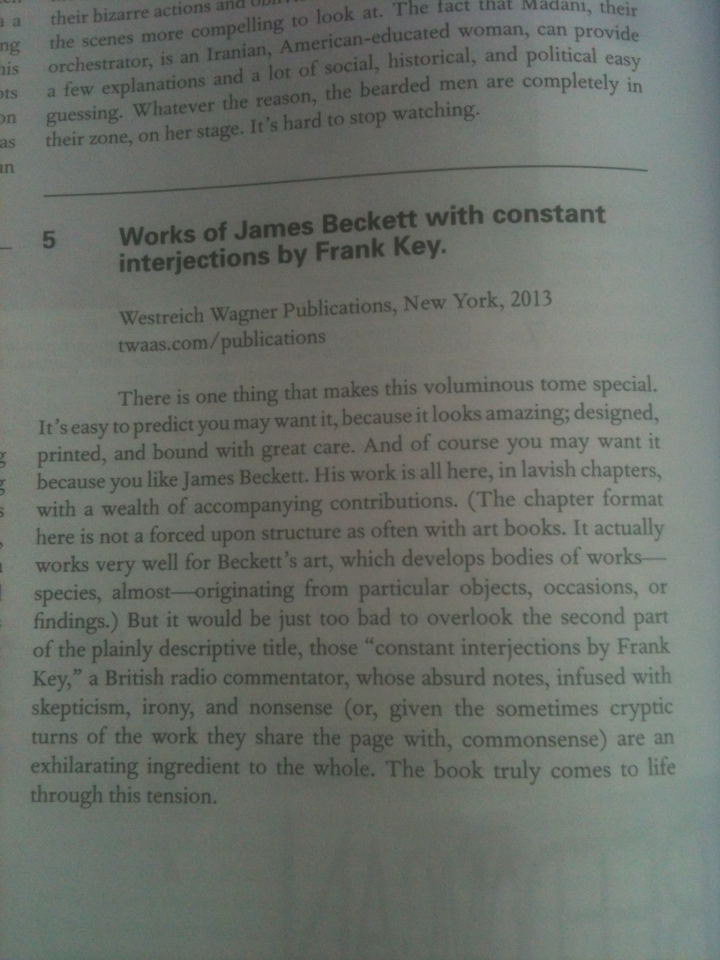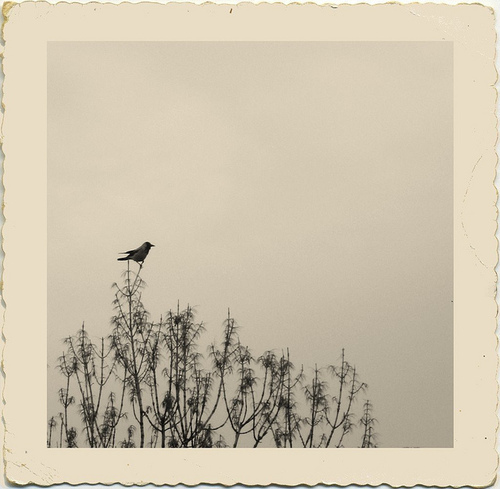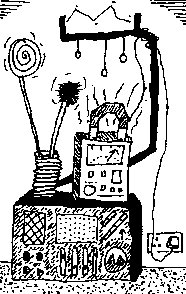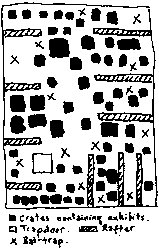And then, as we know, there came the time when Tarleton, the amateur’s amateur, came a-cropper. He was in pursuit of a shifty pastry hawker, a man with a barrow, known to galumph along ill-lit lanes. Tarleton carried a torch, sweeping its bright beam ahead of him, both to avoid pits and puddles and in hope that he might catch a glimpse of his quarry. But, as the old saying has it, a torch in the hands of a nincompoop sheds no light.
Incidentally, it is well worth your while to jot down old sayings in a notepad when you hear them. They can be invaluable in establishing rapport with countryside peasants. If you fall into conversation with such a person, you will discover that their utterances often consist of little else but old sayings strung together. By dropping in your own crumbs of rustic wisdom from time to time, you will be able to maintain conversational sparkle in otherwise trying circumstances. The beauty of it is, you do not need to grasp the actual meaning of the old sayings you deploy.
Consider, for example, the one we have just encountered, a torch in the hands of a nincompoop sheds no light. On the face of it, this would seem to make little or no sense, unless we presume the nincompoop has neglected to press the knob that lights the bulb of the torch he is carrying. But one must always avoid presumption, as we learned from Blötzmann (Third Notebook, Lavender Series). Say that saying to, say, a sophisticated urban person at a swish cocktail party, and you face a series of brusque questions demanding that you clarify what you are saying. Say the same words to a peasant in the countryside and as likely as not he will suck thoughtfully on his piece of straw and nod, before parrying with a saying of his own, such as You can’t milk a goat with a hammer.
But wait wait wait! [These are the words erupting inside your head, dear reader. You see, I know you only too well.] Grateful as I am to be given tips on talking to peasants, tips I will no doubt make use of when next I go trudging through an area of rustic squalor, I cannot let pass the clear implication in your opening paragraph that Tarleton was a nincompoop. How can such things be? Tarleton, the amateur’s amateur. a nincompoop? Surely, sir, you are in jest!
Let me answer that. It is true enough that few persons have ever trod this earth whose brains were as acute as Tarleton’s. Indeed, hold his brain in the palm of your hand and you would be astonished at its heft. It is worth noting, in this context, that you could, if you wished to, so hold Tarleton’s brain. It is kept preserved in jelly in a jar in a display case in the lobby of his alma mater, Miss Blossom Partridge’s Institute For The Education Of Frighteningly Adept Tinies. Make an appointment with the bursar, don a pair of gloves, and an attendant will open the display case and unscrew the lid from the jar and, with special tweezers, lift the brain from its protective jelly and allow you to hold it, registering its heft, for up to sixty seconds. The jar is clearly labelled with Tarleton’s name, so you will not mistake it for the brains of other alumni in other jellies in other jars in other display cases in the same lobby.
Now, as true as it is that Tarleton was no dimwit, it is equally true that nincompoopery is to be found in the most unexpected places. Here we might recall another aperçu of Blötzmann’s, from the Fifth Notebook, Lilac Series. No man is all nincompoop, he observed, but all men have an inner nincompoop ever ready to emerge and flourish. Blötzmann compares this inner nincompoop to a mayfly, in a passage I recommend to your attention. His point is that even the most dazzlingly sensible and spectacular minds may, from time to time, and ephemerally, exhibit the sure signs of nincompoopery. This is what, I argue, happened with Tarleton as he stumbled down an ill-lit lane in pursuit of the shifty pastry hawker.
It was night, a black night, moonless and starless on account of a great shroud of cloud. The first incipient sign of Tarleton’s inner nincompoop was that he did not wait until sunrise to go prowling after his quarry. Even the swiftest of shifty pastry hawkers cannot cover too much ground, trundling a barrow, in the hours between dusk and dawn. And though the lane would still be ill-lit, in the daylight, shaded as it was on either side by towering pines and titanic cedars, yet there would be light enough for a man of Tarleton’s piercing vision. Not so on this night, this black unholy night.
Unholy, I say, because it was the one night in the calendar year when imps and goblins are let loose from their fetters and are free to dash about, all mischief and havoc and mayhem. On this night churns are upended, wells poisoned, cows turned inside out. That, at least, is what the peasants believe. It is what they will tell you, in the form of old sayings, if you are willing to listen. The wise man stays abed on St Spivack’s night, they will say, or When Spivack’s Night comes round again, burn a dolly and slaughter a hen.
For all the startling heft of his brain, Tarleton, the amateur’s amateur, did not heed such warnings. In fact he dismissed the peasants’ old sayings as nonsensical babble. This was his undoing. This was his nincompoopery. And so he went a-stumbling along an ill-lit lane in the night, sweeping the beam of his torch ahead of him. What was he to do when, of a sudden, a goblin came swooping down and gobbled up the light and swallowed it and then belched it out in the form of thick black poison fumes?
Poor Tarleton was terrified, and in his terror he turned on his heel and ran from the goblin, but he made only a half turn, so no sooner did he begin to flee than he crashed into a towering pine, or a titanic cedar, and came a -cropper, and the bash given to his head dislodged his brain within its cranium, and he fell to the ground, and knew no more.
He might have been dead. The peasant who found him, at daybreak, thought him so, and being a gravedigging peasant, he hoisted his spade from over his shoulder and began to dig a pit in which to chuck the body. He whistled as he dug, an ancient rustic tune, and it was the sounds of his whistling and of his digging that woke Tarleton from his stupor. He rubbed his bonce, but remembered nothing of what had happened during the black unholy night. He did not even remember that he had been pursuing a shifty pastry hawker.
“Where am I?” he asked, in an uncharacteristically weedy and quavering voice, “What place is this? What day is it? Why are you digging a pit?”
The peasant did not reply. He was an obtuse peasant, and a peasant with a stubborn sense of purpose. Having begun to dig a grave by the side of the lane in the shade of towering pines and titanic cedars, nothing would stop him until he had shoved the body six feet under and covered it over with earth. And here was a second instance of Tarleton’s nincompoopery. Close observation of the peasant’s countenance, of the grim determination of his digging, might have persuaded Tarleton to get to his feet and run, run away as fast as he could. But he sat up, and lit his pipe, and listened to birdsong, and he was still sitting and smoking and listening when the peasant, his digging done, threw down his spade and turned and picked up Tarleton in one huge hairy hand by the scruff of his neck and chucked him into the pit and retrieved his spade and began to shovel spadeful after spadeful of soil and muck, rich with worms, over the amateur’s amateur, sprawled in the pit, and soon enough buried, never to be found..
The peasant stamped his great boots on the grave, to smooth the ground and remove all trace of his digging, and then, whistling, he went on his way.
Just one thing. If Tarleton was buried alive in an unmarked grave in an ill-lit lane in an area of rustic squalor, how is it that his brain was retrieved and stored in jelly in a jar in a display case in the lobby of Miss Blossom Partridge’s Institute For The Education Of Frighteningly Adept Tinies?
Ah. I could tell you a thing or two about Miss Blossom Partridge, and certain members of staff at her Institute, that would curdle the blood in your veins. Things innocent ears should never hear. Remember the old saying, Ignorance is better by far When you see a brain in jelly in a jar.







